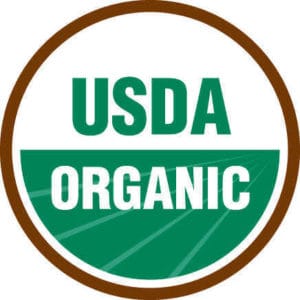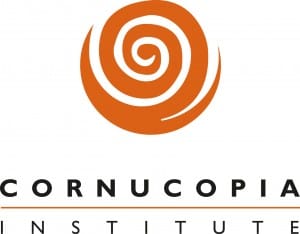Capital Press
By Mateusz Perkowski
Some foreign suppliers of crops have been caught with fraudulent organic certificates in recent years. Premium prices are likely the motivation for the forgeries.
 A sloppy forgery doomed an attempt by Monaz Manufacturing and Supply Services to pass off its crops as organic.
A sloppy forgery doomed an attempt by Monaz Manufacturing and Supply Services to pass off its crops as organic.
A suspicious customer noticed irregularities and missing information on the Malaysian company’s organic certificate and contacted the purported certifying agent.
That certifier, Pro-Cert Organic Systems, confirmed the certificate was fraudulent and then contacted USDA, which announced the problem last September.
Capital Press was unable to reach Monaz for comment.
Byron Hamm, assistant manager of Pro-Cert, said the Malaysian supplier was likely trying to obtain a premium for the wheat, spelt, bran, flour and grains it was selling.
“It’s about money,” said Hamm. “Sometimes the price differential is quite significant. There’s an incentive to try to pass yourself as organic.”
The Monaz fraudulent certificate is one of 26 forgeries that have come to the USDA’s attention in the past three years.
The companies seeking to use the fraudulent certificates operated in Asia, Africa, South America, Europe and the Middle East, but none have been uncovered in North America.
The USDA says only a small percentage of the complaints the agency investigates pertain to fraudulent certificates.
 However, the Cornucopia Institute — an organic industry watchdog group — says the USDA is being too secretive and the true extent of the problem is uncertain.
However, the Cornucopia Institute — an organic industry watchdog group — says the USDA is being too secretive and the true extent of the problem is uncertain.
“Is it the tip of the iceberg? We don’t know,” said Mark Kastel, the group’s co-founder.
The issue is pertinent for U.S. organic growers, as they may be vying with foreign suppliers who claim to be organic but don’t actually follow production standards, Kastel said.
“Organic farmers who operate ethically want to be sure they’re not put at a competitive disadvantage,” he said.
The Pacific Agricultural Certification Society, another organic certifier, also became aware that one of its certificates had been forged.
Last November, USDA announced that the Inner Mongolia Tianfu Food Co. of China had presented a certificate falsely claiming its tomato paste, mushrooms, bamboo shoots and water chestnuts were organic. Capital Press was unable to reach the company for comment.
In this case, the forgery was very authentic — meaning that the Chinese supplier had probably obtained a real version at some point, said Donna Hildebrand, certification committee member at the Pacific Agricultural Certification Society.
The fraud came to light when organic buyers made routine inquiries about Inner Mongolia Tianfu Food Co. only to find that the certifier had nothing to do with the company, she said.
Technology can cut both ways in terms of ensuring organic integrity, Hildebrand said.
The certifier lists its clients on its website, providing an easy mode of verification.
One the other hand, the certifier’s certificates are routinely included as email attachments, which likely allowed the credentials to be falsified.
“Electronic means are impacting it positively and negatively,” she said.
Hildebrand said she’s heartened the fraudulent certificates were discovered, as it shows the system is working.
Unfortunately, not all organic buyers may be as honorable as those who brought attention to the forgeries, said Kastel.
A disreputable buyer may be tempted to look the other way at a dubious certificate if the asking price for an organic crop is tempting enough, he said.
That’s troubling because certificates are fairly easy to imitate, Kastel said. “We’re not talking about something with a hologram on there.”
It’s also worrisome that the USDA has scant power to punish overseas suppliers who commit such frauds, said Hamm.
“Find another business name, mock up another certificate and try it again, perhaps,” he said.
The USDA investigates every report of a fake certificate, said Sam Jones-Ellard, public affairs specialist for the agency’s Agricultural Marketing Service.
“It’s really complaint-based,” he said.
If it’s possible to locate the infringing company, the agency will send a cease-and-desist letter and potentially seek civil penalties if the violation is willful, he said.
Kastel said he’s concerned the violations are only revealed due to complaints, rather than consistent audits of foreign organic imports by USDA.
The agency should also be more forthcoming about its enforcement of these and other violations of organic standards, he said.
“I think they’re being way too guarded,” said Kastel.

